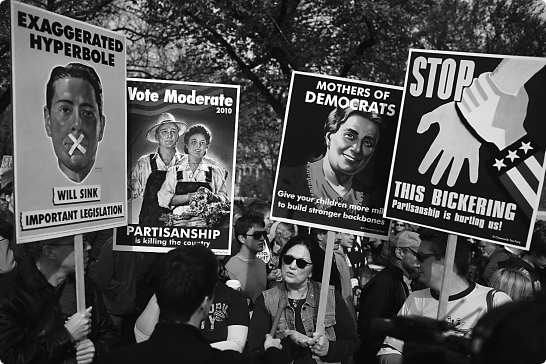Competent Communication Is Process Oriented
Competent Communication Is Process Oriented
Page 13
Ethics and You
Have you witnessed ethical lapses in communication? What was the situation, and what was the eventual outcome? How would you have handled the situation differently if you had been in charge of the communication process?
An old sports adage says, “It’s not whether you win or lose; it’s how you play the game.” This means that the process (how you play) is more important than the outcome (whether you win or lose). In communication, an outcome has to do with the product of an interchange. In a negotiation, for example, the outcome may be that you get a good deal on a product or get a contract signed. Competent communication is also concerned with process—the means by which participants arrive at an outcome. Although outcomes obviously still play a role in a communication process, what is said and how it is said have great significance.
When it comes to process, communicators who strive to create mutually satisfying outcomes are the most competent (Wiemann, 1977). A study of fathers and daughters, for example, found that the most satisfactory relationships involved a matching of needs and a balancing of control (Punyanunt-Carter, 2005). Asif, for example, hoped his daughter Laila would attend his alma mater. In the summer before Laila’s senior year of high school, the two visited that university as well as several others. They worked together on her college applications and debated the merits of each school. Both Asif and Laila describe their relationship as satisfying and note that the process of searching for the right school made them closer, even though Laila ultimately chose another school.

Ethical considerations are a crucial part of the communication process. Ethics is the study of morals, specifically the moral choices individuals make in their relationships with others. Your personal values, along with your culture’s values, provide guidance on how to appropriately construct your messages and how to analyze messages directed toward you (Casmir, 1997; Christians & Traber, 1997). Ethical concerns arise whenever standards of right and wrong significantly affect our communication behavior (Johannesen, 1996). For example, a political spokesperson who lies or twists the truth to get a bump in the polls for a candidate is unethical, manipulative, and exploitive—hardly the characteristics of a competent communicator.
Box 1.2: National Communication Association Credo for Ethical Communication
Box 1.2 National Communication Association Credo for Ethical Communication
Questions of right and wrong arise whenever people communicate. Ethical communication is fundamental to responsible thinking, decision-making, and the development of relationships and communities within and across contexts, cultures, channels, and media. Moreover, ethical communication enhances human worth and dignity by fostering truthfulness, fairness, responsibility, personal integrity, and respect for self and others. We believe that unethical communication threatens the quality of all communication and consequently the well-being of individuals and the society in which we live. Therefore we, the members of the National Communication Association, endorse and are committed to practicing the following principles of ethical communication:
- We advocate truthfulness, accuracy, honesty, and reason as essential to the integrity of communication.
- We endorse freedom of expression, diversity of perspective, and tolerance of dissent to achieve the informed and responsible decision-making fundamental to a civil society.
- We strive to understand and respect other communicators before evaluating and responding to their messages.
- We promote access to communication resources and opportunities as necessary to fulfill human potential and contribute to the well-being of families, communities, and society.
- We promote communication climates of caring and mutual understanding that respect the unique needs and characteristics of individual communicators.
- We condemn communication that degrades individuals and humanity through distortion, intimidation, coercion, and violence and through the expression of intolerance and hatred.
- We are committed to the courageous expression of personal convictions in pursuit of fairness and justice.
- We advocate sharing information, opinions, and feelings when facing significant choices while also respecting privacy and confidentiality.
- We accept responsibility for the short- and long-term consequences for our own communication and expect the same of others.
©1999 National Communication Association